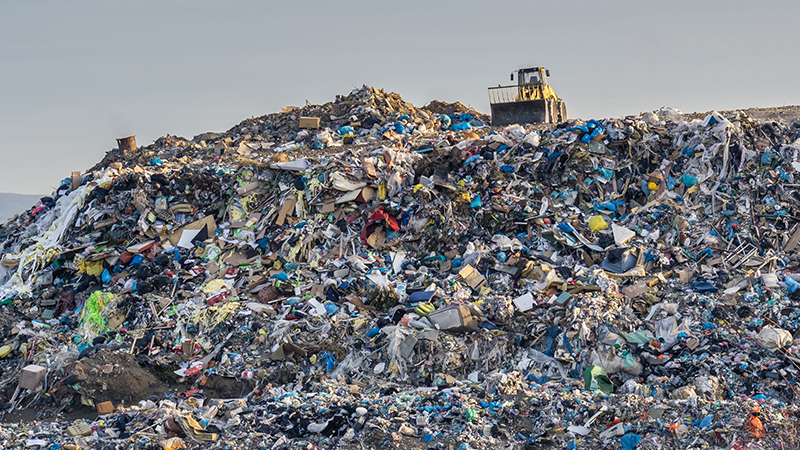In Lilly Cole’s book Who Cares Wins: Reason For Optimisim in Our Changing World she recounts a story when Maria Carter was asked by her school to write about an environmental solution. She handed in something surprising which started me thinking about knives and landfills.
While most children wrote about taking a shorter shower or using energy-efficient light bulbs, Maria submitted advice on knife sharpening. Her farther, Murray Carter, is a 17th generation Yoshimoto bladesmith living in Canada. Maria explained that it takes a lot of resources to make a knife - steel from iron ore, coal furnaces, wood or plastic - but when they become dull, they often end up in landfills where most of their plastic handles will take centuries to biodegrade. Yet as Maria points out, ‘Most knives can be sharpened ( and reused for decades ) until the blade disappears!
The story raised a few interesting questions. First how would I get rid of a knife in the UK? There seems to be two ways of disposing of a knife: wrapping it up in a way that is safe and putting it the kerbside general waste bin ( I am assuming that a metal detector will pick it up at the household waste centre), or take it to the local household waste centre and put it in the metal bin. But Maria’s advice points to a much deeper question - why don’t people sharpen their kitchen knives? There are lots of instructions on the the web about sharpening a knife, including advice from celebrity chefs such as Jamie Oliver. Is it because people are not confident in sharpening a knife? Or do they not have enough time to sharpen it? Is it because they are sold the latest wonder knife that doesn’t need sharpening? Or is it because the price of knives are so cheap that it is easier to throw it away and buy a new one?
Another question that came to mind was about how much waste goes to landfills. A report released by the Department for Environment, Food and Rural Affairs earlier this year, revealed that British households create over 26m tonnes of waste each year, the weight of around 260 large cruise ships. This means that the average person in the UK throws away around 400kg of waste each year; 7 times their body weight. Of the 26m tonnes of waste produced in the UK, 12m tonnes are recycled, and 14m tonnes are sent to landfill sites. This gives us an average recycling rate of 45%. Germany, Austria, and South Korea remain world-leaders when it comes to recycling household waste, recycling 60 – 70%. In the UK, we are only recycling 3% more waste than we did in 2010. The UK government has set a target for us to recycle 50% of all household waste by 2020. Another problem is the reducing landfill capacity in the UK. An Environmental Services Association report produced in 2017 claimed that by 2030 there will be a household waste capacity deficit of 6 million tonnes!
Rather than trying to find new landfill sites or creating new recycling centres maybe we should change our perspective and switch the question from ‘how do we manage all of this waste?’ to why are we producing all of this waste?’
A simple framework for asking ‘why’ questions could be to use the headlines seen on posters about reducing waste such as: Reduce, Replace, Recycle ( I would like to add Repair and Repurpose to the posters ). Taking food as an example. It is estimated that we waste around £250 to £400 per household per year. Therefore the first question would be: why do we buy too much food?. The next question would be: why don’t we find a an environmentally friendly replacement for the food that we do consume? And the final question would be: why don’t we recycle either the waste food or the packaging? The three questions would dig out underlying problems with our attitude to wasting food. A similar approach to using the question why should be applied to other areas of consumption such as clothes, electrical appliances, and cars.
I suspect that the underlying problems to waste are a mixture of culture, behaviours, economics and social structure. If we are to reduce the use of landfill sites we need a multi-faceted approach to the problem rather than pick away at the problem with single point campaigns such as buying recycled coffee cups.
Trying to find more landfill sites rather than reducing the amount of waste is a good example of what the psychologist Daniel Kahneman, writes in Thinking, Fast and Slow “When faced with a difficult question, we often answer an easier one instead, usually without noticing the substitution” In other words it is easier to bury the problem than face up to the more difficult and alternative solutions.
